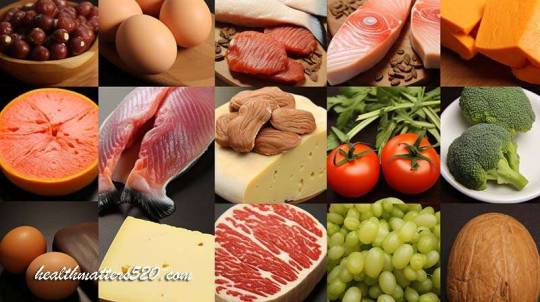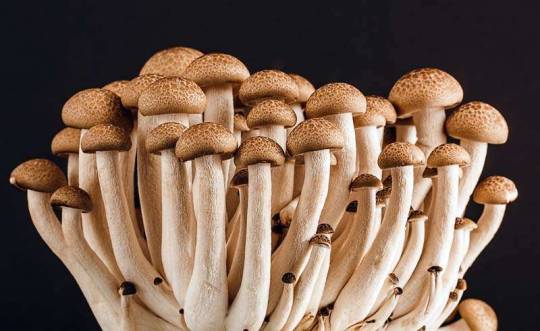#callogenproduction
Text
9 Essential Amino Acids: Definition, Benefits, and Food Sources

Do you know there are 9 essential amino acids that you need to obtain from the food you consume?
The 9 essential amino acids are:
- Histidine
- Isoleucine
- Leucine
- Lysine
- Methionine
- Phenylalanine
- Threonine
- Tryptophan
- Valine
These 9 essential amino acids are crucial for your body's functioning and cannot be produced internally. In this blog post, we will uncover their importance and the food sources that provide them. By understanding their significance and incorporating them into your diet, you can support overall health and well-being. Join us as we explore these essential nutrients and how they contribute to your body's optimal functioning.

Understanding Amino Acids and Essential Amino Acids
Amino acids are the building blocks of proteins and play a vital role in numerous functions within your body. These small molecules combine to form proteins, which are essential for the structure, function, and regulation of tissues and organs.
There are 20 different amino acids that can be found in proteins. Among these, nine are classified as essential amino acids. Essential amino acids are crucial for your health because your body cannot produce them on its own. Therefore, it is necessary to obtain them from the food you consume.
Each of these essential amino acids plays a unique role in your body, supporting processes such as protein synthesis, tissue repair, and the production of important molecules like hormones and enzymes. By obtaining them from dietary sources, you ensure that your body has an adequate supply of these essential nutrients.
9 Essential Amino Acids
Histidine
Histidine is an essential amino acid that your body requires for optimal growth, tissue repair, and the production of histamine. Histamine is a compound involved in various physiological processes, including immune responses and digestion.
Histidine plays a vital role in promoting healthy growth and development, particularly during childhood and adolescence. It is involved in the synthesis of proteins that support tissue repair and maintenance. Additionally, histidine is necessary for the production of myelin, a protective substance that surrounds nerve cells and facilitates proper nerve impulse transmission.
One of the significant functions of histidine is its involvement in the production of histamine. Histamine acts as a chemical messenger in your body and is responsible for regulating immune responses, inflammatory reactions, and allergic responses. It plays a crucial role in triggering the body's defense mechanisms against harmful substances or pathogens.
Food sources rich in histidine:
- Meat (beef, poultry, pork)
- Fish (salmon, tuna, cod)
- Dairy products (milk, cheese, yogurt)
- Grains (wheat, rice, oats)

Incorporating histidine-rich foods into your diet ensures that your body receives an adequate supply of this essential amino acid. By doing so, you support optimal growth, tissue repair, and the proper functioning of your immune system and digestive processes.
Isoleucine
Isoleucine is an essential amino acid that plays a crucial role in energy production, muscle metabolism, and the regulation of blood sugar levels.
Energy Production: Isoleucine is involved in the process of converting nutrients into usable energy within your body. It plays a key role in the function of mitochondria, which are the powerhouses of your cells responsible for generating energy.
Muscle Metabolism: Isoleucine is particularly important for muscle growth, repair, and recovery. It helps stimulate protein synthesis, which is essential for building and maintaining lean muscle mass. Isoleucine also aids in the regulation of muscle metabolism, ensuring efficient use of nutrients for muscle function.
Regulation of Blood Sugar Levels: Isoleucine plays a role in regulating blood sugar levels by assisting in the uptake and utilization of glucose by cells. It is involved in insulin signaling, helping to enhance insulin sensitivity and maintain balanced blood sugar levels.
Food sources rich in isoleucine:
- Meat (beef, chicken, pork)
- Fish (salmon, tuna)
- Eggs
- Dairy products (milk, cheese, yogurt)
- Legumes (beans, lentils)
- Seeds (pumpkin seeds, sunflower seeds)

Including these isoleucine-rich foods in your diet can ensure an adequate supply of this essential amino acid. By doing so, you support energy production, muscle health, and proper regulation of blood sugar levels.
Leucine
Leucine is a vital amino acid that plays a key role in muscle protein synthesis, wound healing, and the regulation of blood sugar levels.
Muscle Protein Synthesis: Leucine is particularly important for promoting muscle growth, repair, and maintenance. It activates a pathway in your body called the mTOR pathway, which stimulates muscle protein synthesis. This process is crucial for building and preserving lean muscle mass.
Wound Healing: Leucine is involved in the healing of wounds and injuries. It contributes to the production of collagen, a protein that plays a critical role in the formation of new tissues and the repair of damaged ones. Adequate leucine levels are necessary for optimal wound healing and tissue regeneration.
Regulation of Blood Sugar Levels: Leucine also plays a role in the regulation of blood sugar levels. It helps enhance insulin secretion and sensitivity, promoting efficient glucose uptake by cells. This can contribute to better blood sugar control and overall metabolic health.
Food sources rich in leucine:
- Meat (beef, chicken, turkey)
- Poultry (chicken, turkey)
- Fish (salmon, tuna)
- Dairy products (milk, cheese, yogurt)
- Legumes (beans, lentils)
- Nuts (almonds, peanuts, cashews)

By incorporating these leucine-rich foods into your diet, you can ensure an adequate supply of this essential amino acid. This supports muscle protein synthesis, wound healing, and helps regulate blood sugar levels.
Lysine
Lysine is an essential amino acid that plays a crucial role in various aspects of your health, including collagen production, calcium absorption, and the synthesis of hormones, enzymes, and antibodies.
Collagen Production: Lysine is necessary for the synthesis of collagen, a structural protein that provides strength and support to your skin, bones, tendons, and other connective tissues. It helps maintain the integrity and elasticity of these tissues, promoting overall skin health and joint function.
Calcium Absorption: Lysine aids in the absorption of calcium, an essential mineral for strong bones and teeth. It helps transport calcium into cells and supports its utilization for bone formation and maintenance. Adequate lysine levels are important for optimal calcium absorption and utilization.
Synthesis of Hormones, Enzymes, and Antibodies: Lysine is involved in the synthesis of various important molecules in your body, including hormones, enzymes, and antibodies. Hormones are chemical messengers that regulate bodily functions, enzymes facilitate biochemical reactions, and antibodies are crucial for immune system function. Lysine contributes to the production of these molecules, supporting overall health and well-being.
Food sources rich in lysine:
- Meat (beef, chicken, pork)
- Poultry (chicken, turkey)
- Fish (salmon, tuna)
- Dairy products (milk, cheese, yogurt)
- Legumes (beans, lentils)
- Quinoa

Incorporating lysine-rich foods into your diet helps ensure an adequate supply of this essential amino acid. This supports collagen production, calcium absorption, and the synthesis of hormones, enzymes, and antibodies.
Methionine
Methionine is an essential amino acid that serves as a building block for the synthesis of various essential molecules in your body. It plays a crucial role in the production of proteins, as well as the synthesis of other important molecules like glutathione, a powerful antioxidant, and key player in cellular detoxification processes.
Protein Synthesis: Methionine is necessary for the synthesis of proteins, which are vital for numerous biological functions. It provides the initial amino acid in protein chains, initiating the process of protein formation. This amino acid is particularly crucial for the synthesis of proteins involved in tissue repair, enzyme production, and hormone regulation.
Glutathione Synthesis and Detoxification: Methionine is required for the synthesis of glutathione, a potent antioxidant that helps protect cells from oxidative stress and supports the detoxification processes in your body. Glutathione aids in the elimination of harmful substances, such as heavy metals and toxins, from your system. Methionine's role in glutathione synthesis contributes to overall detoxification and cellular health.
Food sources rich in methionine:
- Meat (beef, chicken, lamb)
- Poultry (chicken, turkey)
- Fish (salmon, tuna, cod)
- Eggs
- Dairy products (milk, cheese, yogurt)
- Nuts (almonds, walnuts)

By including methionine-rich foods in your diet, you can ensure an adequate supply of this essential amino acid. This supports protein synthesis, glutathione production, and detoxification processes in your body.
Phenylalanine
Phenylalanine is an essential amino acid that serves as a precursor for the production of various neurotransmitters in your brain. It plays a crucial role in brain function, mood regulation, and the production of melanin, a pigment responsible for hair, skin, and eye color.
Neurotransmitter Production: Phenylalanine is involved in the synthesis of important neurotransmitters such as dopamine, norepinephrine, and epinephrine. These neurotransmitters are essential for regulating brain function, influencing mood, cognition, and overall mental well-being.
Mood Regulation: Phenylalanine's role in neurotransmitter production contributes to mood regulation. Dopamine, in particular, is associated with feelings of pleasure and reward. Adequate levels of phenylalanine are necessary for maintaining balanced neurotransmitter levels and supporting positive mood.
Production of Melanin: Phenylalanine also plays a role in the production of melanin, the pigment responsible for determining hair, skin, and eye color. Melanin provides protection against harmful ultraviolet (UV) radiation from the sun and helps maintain the integrity of your skin.
Food sources rich in phenylalanine:
- Meat (beef, chicken, pork)
- Poultry (chicken, turkey)
- Fish (salmon, tuna)
- Dairy products (milk, cheese, yogurt)
- Legumes (beans, lentils)
- Whole grains (wheat, rice, oats)

Incorporating phenylalanine-rich foods into your diet ensures an adequate supply of this essential amino acid. This supports neurotransmitter production, brain function, mood regulation, and the production of melanin.
Threonine
Threonine is an essential amino acid that plays a vital role in various aspects of your health, including protein synthesis, collagen production, and the maintenance of a healthy immune and digestive system.
Protein Synthesis: Threonine is an integral part of protein synthesis, contributing to the formation of new proteins in your body. Proteins are essential for numerous bodily functions, including the growth, repair, and maintenance of tissues and organs. Threonine ensures that your body has an adequate supply of this amino acid for efficient protein production.
Collagen Production: Threonine is also involved in the synthesis of collagen, the most abundant protein in your body. Collagen provides structural support to your skin, bones, tendons, and other connective tissues. Adequate threonine levels are necessary for the production of collagen, promoting skin elasticity, joint health, and overall tissue integrity.
Healthy Immune System: Threonine plays a role in maintaining a healthy immune system. It supports the production of antibodies, which are proteins that help your body fight against pathogens and foreign substances. Threonine is also involved in the production of immune cells, such as T-cells, which play a crucial role in immune response and defense against infections.
Digestive System Health: Threonine contributes to the maintenance of a healthy digestive system. It supports the production of mucin, a substance that helps protect and lubricate the lining of your digestive tract. Adequate threonine levels are important for maintaining the integrity of your gastrointestinal mucosa and promoting proper digestion and nutrient absorption.
Food sources rich in threonine:
- Meat (beef, chicken, pork)
- Poultry (chicken, turkey)
- Fish (salmon, tuna)
- Dairy products (milk, cheese, yogurt)
- Legumes (beans, lentils)
- Nuts (almonds, peanuts, cashews)

Incorporating threonine-rich foods into your diet ensures an adequate supply of this essential amino acid. This supports protein synthesis, collagen production, and the maintenance of a healthy immune and digestive system.
Tryptophan
Tryptophan is an essential amino acid that serves as a precursor for the production of serotonin, a neurotransmitter that plays a crucial role in regulating mood, sleep, and appetite. Additionally, tryptophan is involved in the synthesis of melatonin, a hormone that regulates sleep-wake cycles.
Serotonin Production: Tryptophan is a key building block for serotonin synthesis in the brain. Serotonin is known as the "feel-good" neurotransmitter and is involved in regulating mood, promoting feelings of well-being, and supporting mental health. Adequate levels of tryptophan are necessary to ensure sufficient serotonin production, which can positively influence mood and emotional balance.
Sleep Regulation: Tryptophan also contributes to the synthesis of melatonin, a hormone that helps regulate sleep-wake cycles. Melatonin plays a crucial role in promoting quality sleep and maintaining a healthy sleep pattern. Consuming tryptophan-rich foods can support the production of melatonin and promote better sleep quality.
Appetite Control: Serotonin, derived from tryptophan, is involved in appetite regulation. It helps regulate hunger and satiety signals, which can influence food intake and contribute to maintaining a healthy weight. Adequate tryptophan levels can support a balanced appetite and contribute to healthy eating habits.
Food sources rich in tryptophan:
- Poultry (chicken, turkey)
- Meat (beef, pork, lamb)
- Fish (salmon, tuna)
- Dairy products (milk, cheese, yogurt)
- Legumes (beans, lentils)
- Seeds (pumpkin seeds, sunflower seeds)

Incorporating tryptophan-rich foods into your diet can ensure an adequate supply of this essential amino acid. This supports serotonin production, mood regulation, sleep quality, and appetite control.
Valine
Valine is an essential amino acid that plays a significant role in muscle metabolism, tissue repair, and the maintenance of nitrogen balance in the body.
Muscle Metabolism: Valine is one of the branched-chain amino acids (BCAAs) that are particularly important for muscle health and function. It is involved in energy production and acts as a fuel source for muscles during intense physical activity. Valine helps maintain muscle strength and endurance, supporting optimal muscle metabolism.
Tissue Repair: Valine is crucial for tissue repair and recovery. It supports the synthesis of proteins involved in the growth and repair of various tissues, including muscles, tendons, and skin. Adequate valine levels are necessary for efficient tissue repair, especially after exercise or injury.
Nitrogen Balance: Valine aids in maintaining nitrogen balance in the body. Nitrogen is an essential component of amino acids and proteins. Valine helps ensure a healthy balance between protein breakdown and protein synthesis, which is crucial for overall protein metabolism and maintaining muscle mass.
Food sources rich in valine:
- Meat (beef, chicken, lamb)
- Poultry (chicken, turkey)
- Fish (salmon, tuna)
- Dairy products (milk, cheese, yogurt)
- Legumes (beans, lentils)
- Mushrooms

Incorporating valine-rich foods into your diet ensures an adequate supply of this essential amino acid. This supports muscle metabolism, tissue repair, and the maintenance of nitrogen balance in the body.
Complete Protein Sources
Getting all nine essential amino acids is important for maintaining optimal health and supporting various bodily functions. While some foods may lack certain essential amino acids, there are several complete protein sources that provide all nine amino acids in adequate amounts. Including these foods in your diet can ensure you meet your amino acid requirements:
Read the full article
#9EssentialAminoAcids#bloodsugarlevels#brain#callogenproduction#completeproteinsources#digestion#Histidine#immunesystem#muscle#Phenylalanine#Threonine#Tryptophan#Valine#vision
0 notes